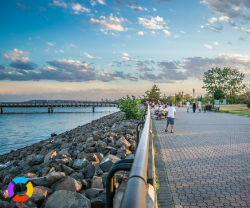New Jersey Governor Wants to Spend Money on Addiction Fight
Phil Murphy, the Governor of New Jersey, said on Tuesday, April 3, 2018 while he visited a recovery home in Trenton that he wants to spend more money on the fight against opioid addiction. Murphy says he hopes to spend around $100 million on this fight, but he assured critics that the money would be coming from the budget he proposed earlier this year.

Breaking it down, Murphy stated the money would be allocated thusly: $87 million to treatment, prevention, and recovery for those already suffering from and likely to suffer from addiction and $13 million for treatment centers to receive new technological advances. Murphy also stated that a large portion of the funds would be focused on outpatient care.
“We must be strategic,” he said Tuesday. “We cannot just blindly throw money at the opioid problem.”
Murphy was clear also that the money would not be spent on radio and television ads, which was a jab at former New Jersey Governor Chris Christie whose radio and TV ads (mostly featuring himself) cost the state over $44 million.
Recognizing Opioid Addiction in a Loved One
It can be very difficult to come to terms with the fact that someone you care for deeply is suffering from an opioid addiction. These drugs, while dangerous, are also highly available, and more and more people in New Jersey and across the country are becoming addicted every day.
Ask yourself the questions below, and you can begin to recognize whether or not someone you love is struggling with this serious substance abuse disorder.
- Does your loved one use opioids every day?
- Do they often seem confused, extremely tired, and euphoric?
- Do they exhibit small pupils often (a sign of an opioid high)?
- Do they hide prescription bottles, pills, syringes, and other drug paraphernalia in their room or home?
- Have they stopped caring about the people and things that used to matter to them?
- Do they spend lots more time alone and/or with people they didn’t used to spend time with? (National Library of Medicine)
- Do they become hostile when you mention their substance abuse in a negative light?
- Have they ever overdosed on opioids?
- Do they have trouble just getting out of bed or getting through the day without using?
- Have they ever experienced flu-like symptoms or extreme pain when unable to use more of the drug?
- Have they tried to cut back or put a stop to their opioid use and been unsuccessful?
If you answered yes to any of these questions, it is extremely likely that your loved one is abusing opioids and has also become addicted. As stated by the NLM, these medications can sometimes be taken safely, but even those who start out taking them as prescribed by a doctor have the potential for becoming addicted if they begin to abuse them. The best, safest option for your loved one’s recovery now is for them to seek professional treatment.
How Can I Find Treatment for My Loved One?
We can help you find the best care available for your friend or family member in your area. Just call 800-996-6135 , and we will connect you with a treatment advisor.

